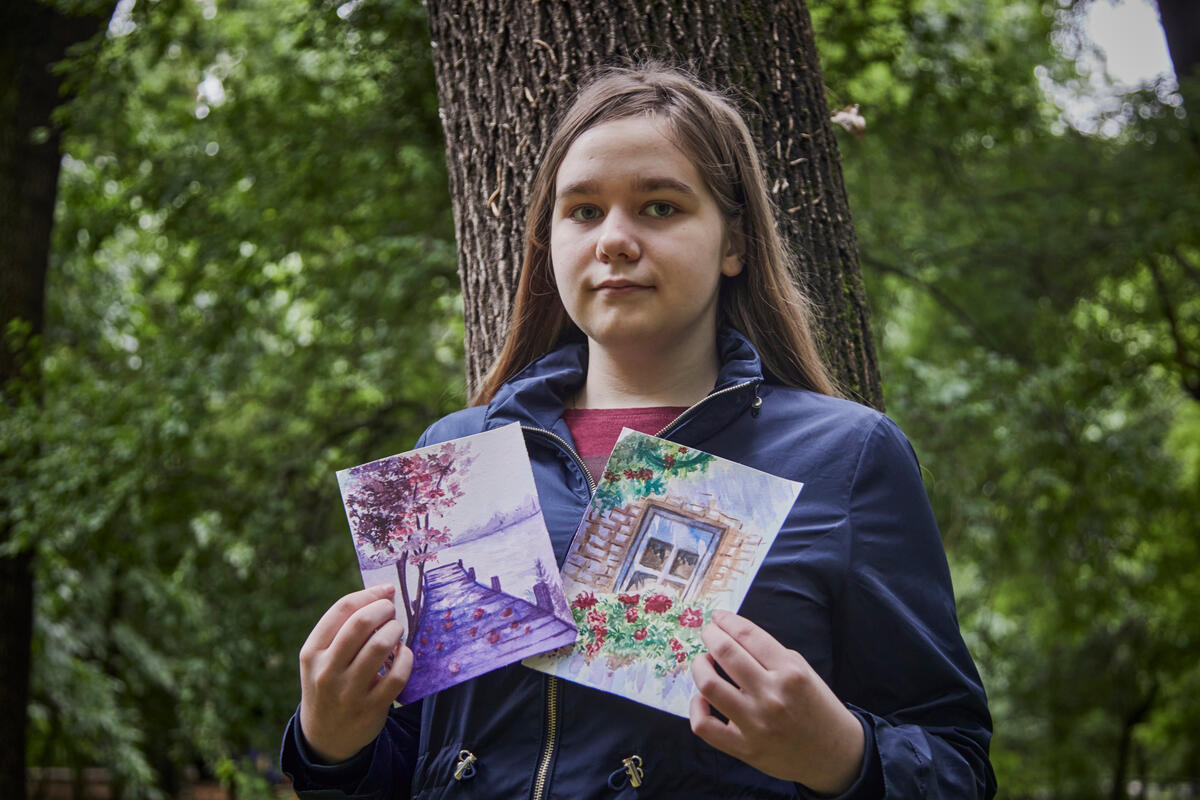'I stopped by your house in Syria today, but no one was home'
'I stopped by your house in Syria today, but no one was home'

Dear Hani,
I stopped by your house today, but you weren’t home. No one was home. Your parents weren’t there to join us for tea, and there was no sign of your brothers or sisters. Your neighbors were away too.
I would have knocked, but your front door is missing. Not just the door, but also the hinges and the frame that once secured it to the wall. The floors were strewn with rubble.
I hate to say it, but the place was a wreck.
You realize, of course, that I’m not talking about your family’s new home in central Canada, eight time zones away. I mean the two-story house where you grew up in Syria, the one you were forced to flee six and a half years ago, when you became a refugee.
I’m here in Homs, your hometown. I remember you telling me about this place when I first met you in Lebanon, camped out with a thousand other Syrians in some farmer’s field. The war was raging here, and you spoke of how, before you fled, your mother would beg you not to go to school. She was afraid you might get shot, or get your throat slit just like your uncle, your aunt, your cousin. You told me about the friends you missed, the rap music you used to make together, the poems you used to write. You were desperate to continue your education, and my colleagues and I felt your story needed to be told.
Now I’m here to interview people who are slowly returning from other parts of the country after struggling for years to stay out of harm’s way. Mostly they are coming home to ruins. The epic scale of the destruction reminds me of West Mosul, where I encountered a similar mood last summer: people weary of war, scarred by all they have endured, and eager to start anew.
One family I met today spoke of their struggle to find work and shelter the past few years. Returning to their apartment in the Al-Qusour district several months ago, they were crushed to see that everything they left behind had been looted, burnt or blown up. Debris filled the place from floor to ceiling.
Slowly they are putting the pieces back together. With help from my colleagues, Jihad and his sons have installed windows and doors to keep the family warmer and safer. A blacksmith and handyman by vocation, he’s itching to do more. “I’ll fix every one of these houses for you,” he said, gesturing with his calloused hands at the crumbling facades up and down his street. “Just give me the tools.”
Afterwards, he and his boys took me up to the roof to see their pigeons. Abdelmalek, who’s 12, unlocked the cages and soon their flock of 40 was circling overhead, sweeping over the broken cityscape with enviable ease.
After watching the birds return to their roost, I got a ride to your neighborhood and walked down your street. There wasn’t one parked car. It looks as if everyone has packed up and gone on holiday at the same time. But I know this has been no vacation for any of you.
After eight years of conflict, half your nation has left home. You have been displaced, often multiple times. Today, 5.6 million Syrians are still living as refugees in neighboring countries. Millions more remain displaced inside Syria. It’s a relatively small number who, like you, have gotten a second chance in another part of the world.
On your street, there were no stray cats or dogs. Not even any birds. The only sound was the distant whirr of a saw cutting through metal. Your neighborhood, Hani, is a ghost town.

When I got to your house, I stood at the entryway and gazed right in, like a superhero with X-ray vision. I thought of that nerdy old icebreaker: If you could choose a superpower, would you rather have the ability to see through walls, or to fly? After what I’ve seen today — the graceful arc of Abdelmalek’s pigeons, the grim view into your empty living room — I will always choose to fly.
The interior doors are also gone, even the one to the bathroom with the blue and white tiles, which now faces right onto the street. The kitchen ceiling has collapsed, so I could see through to one of the bedrooms on the second floor—perhaps the one where you used to make your music and write your poetry. Outside your living room window, with a pile of shattered glass at my feet, I stood and stared at the emptiness.
This is what happens in a war zone. Any time the fighting ebbs, scavengers come and take what’s left behind. Not just appliances and furniture and pots and pans. They strip the lighting fixtures, the electrical outlets, the wiring. They take the doors and windows, and the wood or metal frames that hold them in place.
The wood they might burn for heat or as cooking fuel. The rest they barter or sell to the scrap man, who sells it to someone else who melts it down. Some of them, no doubt, seek to profit from other people’s misfortune. But most, I imagine, are as desperate as those who flee, just doing what they can to survive.
UNHCR's Head of Communications and Spokesperson for the High Commissioner spoke in this TED Talk about Hani's passion for learning.
Even in its current state, Hani, your house in Homs is a lot nicer than that place where you were living when we first met five winters ago. Remember that makeshift shelter in Lebanon, wrapped in plastic sheeting, with just the wood stove to keep you all warm? Your mother poured us tea, and later we stood outside and looked at Syria, that snowy ridge so close we could have walked there in an hour or two.
I considered going inside your old house, thinking I might find something you left behind: an item you once treasured or an everyday object that I could give you as a memento. Then I recalled how you had made sure to grab the most important thing before you fled: your school certificates, which let you to continue your education in exile.
In the end, I never stepped past the threshold. I’ve done enough security training to know there might be structural damage or live explosives inside, like the mortar my colleagues and I came across a few hours earlier. Or maybe I’d just step on a rusty nail. But mostly it felt wrong, like poking through the wreckage after a ghastly accident.

It’s that time of year again when the media remind us that the conflict in Syria began on March 15, 2011, but we both know that wars seldom start or stop with such precision. We also know that this date has another meaning for your family: it’s the day your youngest brother was born. It’s amazing how fast these eight years have flown by, and how slowly. How much pain they have brought your family, and also some joy.
Hani, please wish Ashraf a happy eighth birthday for me. And before he blows out his candles, remind him to make a wish of his own. The biggest wish he can imagine. Make one for yourself too.
Christopher Reardon is chief of multimedia content at UNHCR, the UN Refugee Agency. He and his team have been following Hani’s story since 2013. This open letter was also published on We the Peoples.
Listen to an interview with Hani and Chris on CBC’s “The Current”.










